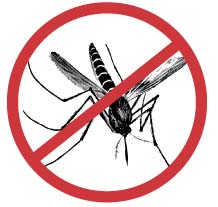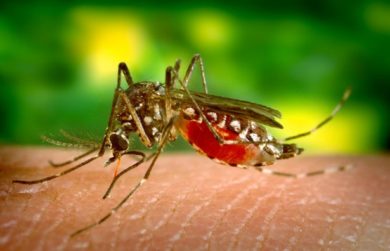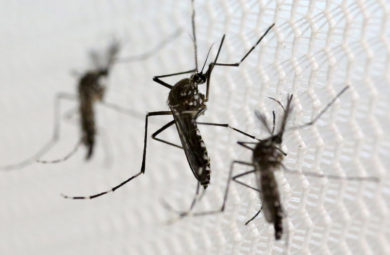Mosquitoes carry not only Zika virus
Ironically, humans are the ones that opened up doors for mosquitoes invaders to spread by transporting them around the globe and providing a trash filled urban landscapes which perfectly suit them to prosper.
Right now, the world is mainly focusing on Zika’s rapid development in the Americas, however experts warn the virus that originated in Africa is just one of a growing number of continent jumping diseases carried by blood sucking mosquitoes. Zika is not the only deadly virus carried by mosquitoes. Mosquito invaders are turning up with increasing regularity from continent to continent, challenging to the tropics, scientists documenting the case says.

Ironically, humans are the one that opened up doors for mosquitoes invaders to spread by transporting them around the globe and providing a trash filled urban landscapes which perfectly suit them to prosper. The Aedes aeegypti female mosquitoes species are blamed for transmitting Zika breeds in car tyres, tin cans, pet food bowls and cemetery flower vase. Around the world, disease carrying mosquitoes are advancing at speed, taking viruses such as dengue and Zika, plus a host of lesser known ills such as chikungunya and St Louis encephalitis, into new territories rolling from Europe to the Pacific.
“The concern is that we have these species spreading everywhere. Today the focus is on Zika but they can carry many other viruses and pathogens,” said Anna-Bella Failloux, head of the department that tracks viruses at France’s Institute Pasteur.
Two years ago, in 2014, there was a large outbreak of chikungunya in the Caribbean, where it had not been seen before, while the same virus affected Italians in 2007 as a wakeup call for public health officials. Europe has seen the re-emergence of malaria in Greece for the first time in decades and the appearance of West Nile fever in eastern parts of the continent. Out in the Atlantic, the Madeira archipelago reported more than 2,000 cases of dengue in 2012. In the past 40 years, six new invasive mosquito species have established in Europe.
Mosquitoes lay their eggs in the car tyres and it hatch when rain moistens them at their destination.
North American health experts are also racing to keep up, with the first appearance of Aedes japonicus, an invasive mosquito, in western Canada last November. For many experts, the biggest potential threat is Aedes albopictus, also known as Asian tiger mosquito, which is expanding its range widely and is capable of spreading more than 25 viruses, including Zika.
In the U.S.A., Aedes albopictus has been found as far north as Massachusetts and as far west as California. In Europe it has reached Paris and Strasbourg.

Scientists believe that both Aedes aegypti and Culex quinquefasciatus probably first arrived in the Americas from Africa on slave ships. Nowadays, commerce has shuttled other species around the world, and air traveling has exposed millions of people to new diseases.
Human invasion into rainforests have aggravated the problem even further. Deforestation in Malaysia, for instance, is blamed for a steep rise in human cases of a type of malaria usually found only in monkeys. There have been some victories against mosquitoes, thanks to insecticide-treated bed nets and vaccines against viruses. Nevertheless, mosquitoes still kill around 725,000 people a year, mostly due to malaria, or 50% more than are killed by other humans, announces the Bill & Melinda Gates Foundation.
 Also, climate change adds more to it. A 2-3C rise in temperature can increase the number of people at risk of malaria by between 3% to 5%, or more than 100 million, according to the World Health Organization. Hotter weather also speeds up the mosquito breeding cycle from around two weeks at 25C to seven – eight days at 28C.
Also, climate change adds more to it. A 2-3C rise in temperature can increase the number of people at risk of malaria by between 3% to 5%, or more than 100 million, according to the World Health Organization. Hotter weather also speeds up the mosquito breeding cycle from around two weeks at 25C to seven – eight days at 28C.
Should we wipe out all mosquitoes from the surface of the Earth?
Aggressive action was taken in the 1950s and 1960s when the use of pesticide DDT was undertaken. Such actions surely killed a lot of mosquitoes, however trying to eliminate all them would make no sense, since there are 3, 549 species of it and less than 200 consumes human blood. Keeping in mind, mosquitoes are also a great food source for frogs, fish and bats. Some type of mosquitoes also feed on flowers nectar or even eat dangerous Aedes aegypti larvae.
Information adapted from the Bangkok Post


